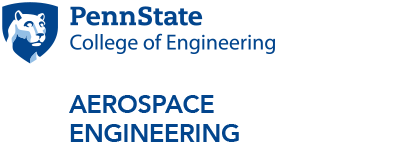Yamamoto receives ONR grant for scalable manufacturing of polymer nanocomposites
05/19/2016
UNIVERSITY PARK, Pa. — Namiko Yamamoto, assistant professor of aerospace engineering at Penn State, was recently awarded $376,599 through the Office of Naval Research (ONR) Navy and Marine Corps Science and Technology program for her research proposal titled “1D-Patterned Nanocomposites Structured Using Oscillating Magnetic Fields.”
Yamamoto, who is the principal investigator on the project, says the goal of the research is to “develop a scalable manufacturing capability of hierarchical 1D-patterned nanocomposites that will enable bulk application of multifunctional polymer-nanocomposites in aerospace structures.”
The proposed research aligns with ONR’s interest in the field of Sea-Based Aviation National Naval Responsibility – Airframe Structures and Materials. The successful development of lightweight, high-performance nanocomposites with unique properties could provide solutions to the tight requirements for next-generation aerospace vehicles and rotorcraft.
Currently, nanocomposites with ordered microstructures cannot be fabricated in large size; nanocomposites display poor organization of nanoparticles, resulting in lower performance than expected. By structuring nano- and micro-fillers in a polymer matrix suspension, and using external oscillating magnetic fields, Yamamoto seeks to accelerate the fabrication and design process of highly organized nano-fillers that can be tailored for desired mechanical, electrical, thermal and/or thermoelectrical functionalities.
“With this external means to manipulate nano-fillers, nano-filler morphology can be controlled independently from matrix conditions (morphology and viscosity), unlike the case with conventional fabrication methods where matrix conditions largely influence nano-filler distribution,” said Yamamoto.
“The oscillating fields will be applied to particles of different size, shape or magnetic property, and the study will allow us to evaluate the effects of magnetic forces, hydrodynamic forces, gravity and thermal loads,” she added.
A realistic, scalable nanomanufacturing method that yields high-performing, large-scale nanocomposites with alternative fracture mechanisms and improved electrical and thermal conductivity could have numerous applications for aerospace engineering, as well as other fields.
Nano- and microstructures could be 3D-designed for optimized performance for multi-scale damage tolerance, higher stability and tolerance in extreme environments and effective multi-field coupling. Nano-filler networks could also serve as smart actuators and system health monitors.
Yamamoto joined the Penn State aerospace engineering department in July 2014, and she is associated with the Materials Research Institute at Penn State.




